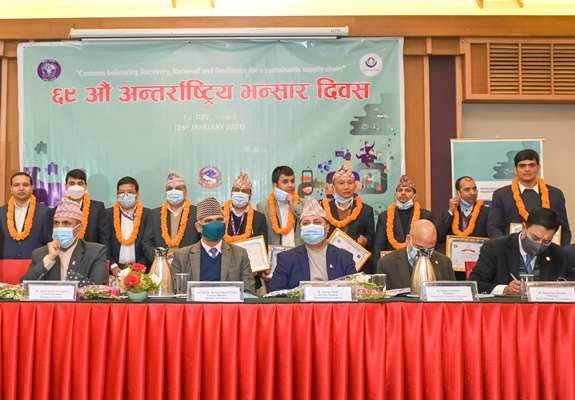
- The Nepal National Single Window was launched January 26, 2021
- It currently connects three regulatory agencies—Department of Food Technology and Quality Control, Department of Livestock Services, and Plant Quarantine and Pesticide Management Center
- The NNSW will later interconnect 40 government and private agencies involved in Nepal’s international trade cycle
Nepal has officially launched the Nepal National Single Window system (NNSW), which will interconnect 40 government and private agencies involved in Nepal’s international trade cycle.
The NNSW was launched on January 26, 2021, which is the World Customs Organization’s 69th International Customs Day celebration.
Funded by the World Bank and operated by the Department of Customs, the NNSW currently connects three regulatory agencies related to international trade—Department of Food Technology and Quality Control, Department of Livestock Services, and Plant Quarantine and Pesticide Management Center, according to a release from SGS.
In July 2015, SGS, a verification and certification company, was appointed by the government of Nepal to supervise the design, procurement and implementation of the NNSW.
Finance Minister Bishnu Paudel, who led the launching of the system, said the new system has enabled the country’s customs administration to reach an international standard. “The web interface facilitates the official procedures for import and export through an online system and helps make available information on the harmonized system code of various products and tax related issues.”
The NNSW system will have a substantial impact on the country’s end-to-end logistics supply chain network and will boost Nepal’s competitiveness regionally and on the global stage, according to Webb Fontaine, provider of the network solution.
The NNSW system has created a “one-stop shop” where traders and customs stakeholders can easily access services such as licenses submission and ePayments digitally.
A fully digitized online system, the system is seen to dramatically reduce the processing time and costs associated with bringing goods in and out of the country. It is expected to streamline processes by doing away with the need for traders to visit various government offices. Instead, all of the required registrations and fees can be processed via one centralized online portal.
Photo courtesy of Webb Fontaine








